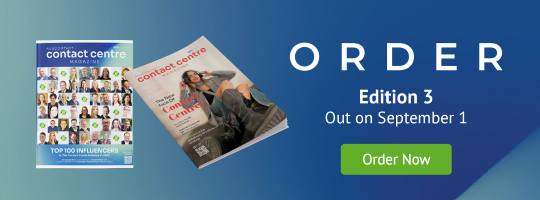Australia’s contact centre outsourcers had a roller-coaster ride through the pandemic and the 2022 change of Government, now Generative AI is causing a new wave of disruption. Through it all, the fundamental reasons why businesses choose to outsource all, or part of their contact centre operations have remained constant, and BPOs, as the outsourcers are known, play a significant and indispensable role in the Australian contact centre industry.
Outsourcing Making Your Life Easier
In fact, the Australian public would have been severely impacted by poor service during COVID-19, had the BPOs not come to the rescue of various State and Federal Government agencies, health and aged care organisations, and financial services companies, who were swamped with demand that was impossible to service in-house.
At the heart of the BPO business model is an inbuilt “flex” capability, the ability to respond rapidly to change and to ramp up and down in line with fluctuating client needs. The outsourcing industry was stretched to its limits, working round the clock to provide contact tracers, National Coronavirus Helpline staff, agents skilled in Government subsidies and policies, not to mention health advice via triage services. The result was revenue and headcount boom times for onshore BPOs.
In 2022, as a new normal for life post-Covid settled within the environment, that demand subsided, and in the same year, as Labor came to power, many Government contact centre outsourcing contracts were reduced. This double whammy particularly impacted large outsourcers, and sent a message: diversify, or decline!
Contact Centre Diversification
2023 became the year of diversification in contact centre outsourcing on a number of fronts. Geo-diversification (that is, offering clients options not only in Australia, but nearshore and/or offshore) reflects the trend for the private sector to mitigate operational risk by spreading contact centre work across multiple countries. The work can be divvied up in many ways, such as day-time shift onshore, swing and graveyard shifts offshore, taking advantage of time zone differences in countries like South Africa. Alternatively, business, and premium customers can be serviced onshore, while offshore partners can handle the rest of us! Telstra is an example of a company that has divvied up the work by channel – voice back in Australia, while digital channels, such as chat, messaging and email remain in the Philippines or India. Some clients ask their offshore partners to manage all interactions, and just send escalations back to the inhouse team in Australia.
It’s truly a buyer’s market however, as there are a smorgasbord of destinations vying for Australian business ranging from countries including Georgia, the Philippines, South Africa, and Uzbekistan, through to the island paradise of Fiji. We have seen some interesting trends when it comes to enquiries for offshore outsource destinations on Matchboard’s platform, with 13% of outsourcing requests preferencing Fiji, and 10% the Philippines from January to September 2023. Perhaps to some people’s surprise, onshore still accounts for more than half the volume of Australian contact centre outsourcing.
Generative AI in Outsourcing
Apart from geo-diversification, BPOs are diversifying their offerings to incorporate the trend towards self-service. Rather than lose business to chatbot vendors, BPOs are now re-selling the technology themselves, offering clients the “full package”, no matter how they wish to communicate with customers. Many customer interactions are of course a blend of automation and human conversation, so contact centre outsourcers need to rethink the way they price their services – historically, hourly rates have been standard, but that doesn’t work necessarily with a blended bot + human interaction.
The advent of ChatGPT in November 2022 has supercharged market interest in, and adoption of, conversational AI. But the opportunity for BPOs lies not just in the new revenue stream of technology sales, but behind the scenes as well, in the BPOs’ own operations. For example, Generative AI is being used to increase operational efficiency by replacing the contact centre agent for after-call work. The AI can produce an after-call notes summary faster, and potentially more comprehensively, than an agent under time pressure to move to the next call. Using AI-powered speech analytics is also effective in monitoring mass volumes of calls, where a human QA department can only ever get to a small random sample. BPOs are even using Generative AI to write or review sections of tender responses. All these changes will enable outsourcers to operate smarter, but skillsets are changing as well. Conversation designers, prompt engineers and AI verification specialists (who check for hallucinatory content) are all jobs creeping into BPO org structures.
Finally
Due to the tight labour market (and the fact that BPOs are generally not able to compete on higher wages versus inhouse contact centres), we are seeing outsourcers diversify their recruitment strategy, to cast a wider net. This includes hiring more mature age and neurodiverse workers and offering more shift flexibility, particularly to suit part-timers.
Drivers for outsourcing include not just cost reduction, but also
- transferring “HR headaches” to a third party, minimising distractions to the business
- greater flexibility to ramp up and down based on planned or unplanned events such as seasonality
- reducing the liability of fixed employee costs
- mitigating operational risk with more than one location, and
- accessing technology or human expertise not available in-house.
Australia has a thriving contact centre outsourcing industry which has proven its ability to adapt to changing market dynamics. It will be exciting to watch the AI-enabled “BPO 2.0” era unfold.
Sharon Melamed
Sharon Melamed is the Founder of matching platform Matchboard, named by Optus as Australia’s Business of the Year and by Westpac as one of “200 Businesses of Tomorrow”. With 30 years’ experience in the contact centre and BPO world, Sharon has helped hundreds of clients set up and manage customer service, sales and back office functions, across four continents. Sharon was named 1 of the region’s top 100 influencers by Auscontact.










Comments are closed.